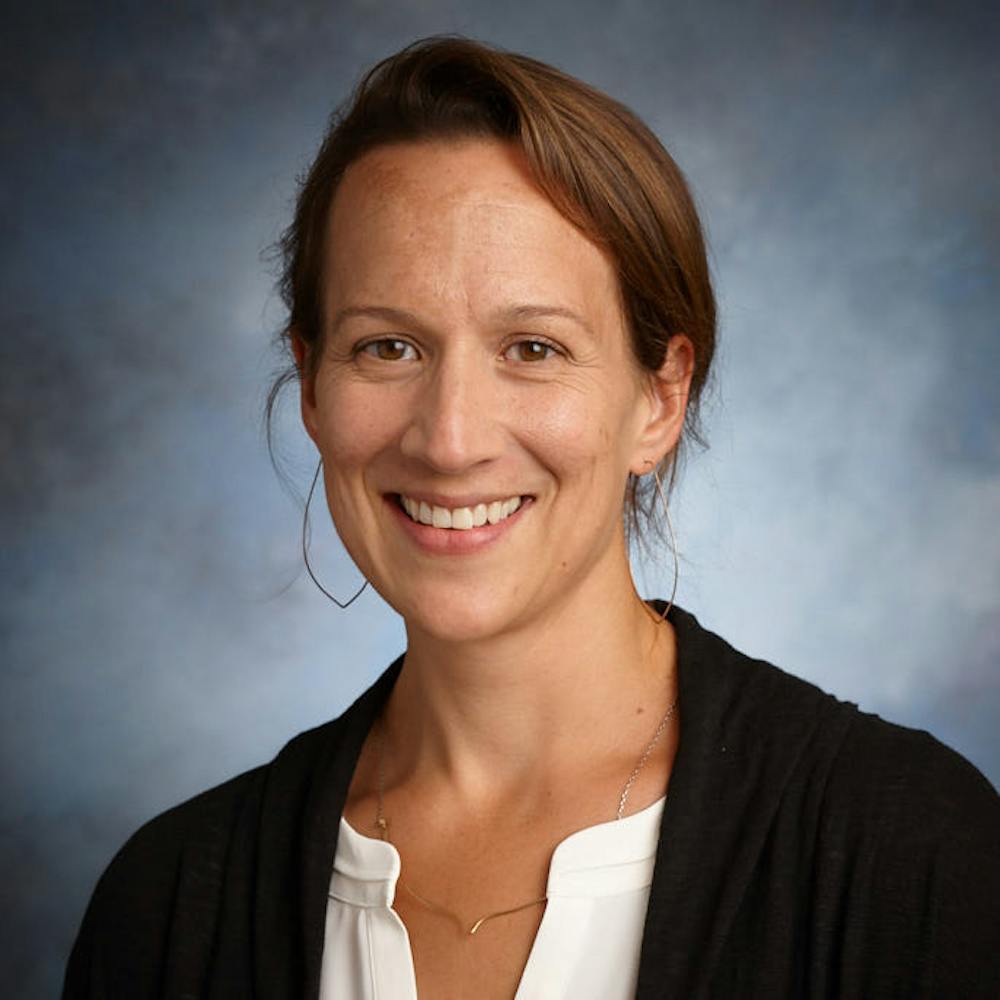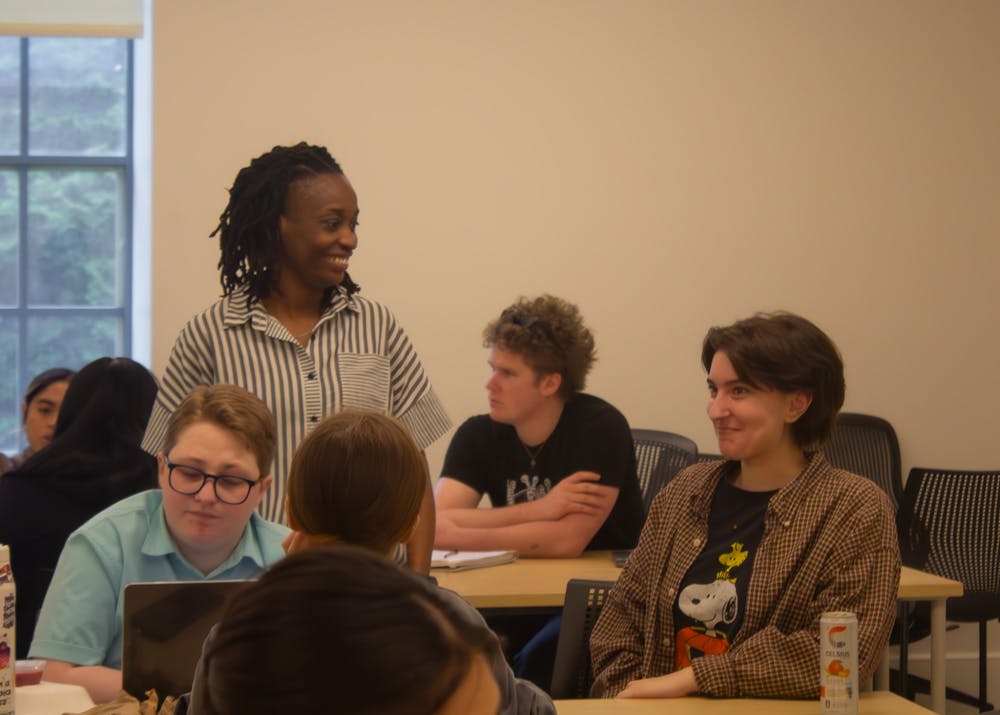Alice Gates and Anita Gooding, two of three full-time faculty members in the University of Portland’s Dorothy Day Social Work Program, will leave the university at the end of the academic year. Gates, who has been at UP for 14 years, and Gooding, who joined in 2020, have played significant roles in several student organizations and faculty initiatives. While Gates is pursuing a new opportunity at Oregon Health & Science University (OHSU), Gooding is leaving due to financial considerations.
Despite their departures, the program will not be cut. Provost David Mengel confirmed that the University has launched a search to hire one full-time replacement and that current instructor Liz Schallert will assume the role of Program Director with appropriate compensation.
Gates joined UP in 2011 after working with immigrant communities and labor organizers. At UP, she focused on equity initiatives, including advocating for a more transparent faculty salary schedule and forming a multi-racial faculty collective that evolved into the College of Arts and Sciences’ (CAS) DEIJ leadership committee.
“A lot of my work [at UP] has been focused on using my relational skills and strategy to bring people together at the right time to make positive changes in their environment,” Gates said.

Alice Gates, professor of sociology and social work, poses for a photo. Photo courtesy of the University of Portland.
Although Gates is looking forward to stepping into a new role at OHSU, she expressed concerns about the program’s ability to meet accreditation standards, which require a specific faculty-to-student ratio.
According to the Council on Social Work Education (CSWE), undergraduate programs must maintain a ratio of roughly 1:25, though many institutions aim for 1:12 or 1:15 in practice. With only one replacement planned for two departing full-time faculty, Gates noted that UP could struggle to maintain compliance.
“Tuition-dependent schools like UP have seen enrollments drop,” Gates said. “So it becomes really hard for universities that are facing multiple deficit budget years to sustain all the programs that they want to.”
Still, she emphasized her belief in the value of the program and hopes the administration will continue investing in it.
“The University of Portland’s mission says that it prepares students to respond to the needs of the world and its human family,” Gates said. “In the 14 years that I've been here, I've seen again a consistent contribution to that part of the mission. So my hope is that the administration, the alums, the Regents, are listening and will continue to find creative ways to invest in this really, really important program.”
She also emphasized that the program provides critical access for first-generation students. Because of its accreditation, UP social work graduates can qualify for advanced standing in Master of Social Work (MSW) programs, allowing them to complete a master’s degree in one year instead of two, making graduate education more accessible.
Gooding, who will also leave at the end of the academic year, echoes Gates’ sentiment about the importance of the social work program and cites Portland's high cost of living as central to her decision to leave.
“It's impossible to own a home here in Portland,” Gooding said. “The salary at UP, you know, I'm grateful to have a job, but it's not the best. It's not possible for me to sustain one job to live here.”
During her time at UP, Gooding was active beyond the classroom, supporting student organizations such as the Black Student Union, Womxn of Color Club, Ethnic Studies program, the Social Justice Club and participated in the DEI director search committee.
Marley Chavarria, a senior social work major, said Gooding’s departure will notably impact students of color.
“She's really the only staff of color in the department,” Chavarria said. “So I think that a lot of students of color were really able to resonate with her and feel close in that way… I think it will have an impact on students ethnically and racially.”
Gooding described the social work program as a hub for interdisciplinary collaboration and student belonging. With two full-time faculty members leaving, she expressed concern about how the sense of community may be affected.
“In many ways, we were kind of a home for other programs, other faculty, students, to kind of gather around this content,” Gooding said. “So to have one less person in that hub is going to be hard.”
She also called on the University to consider investing in long-term faculty stability by creating a tenure track in the program — a decision she sees as critical to signaling institutional commitment.
“And so it means [providing a tenure line] they are investing in that person, investing in that program, explicitly, with their money, with their time,” Gooding said. “That's another key way that the administration can, in my view, show that they are committed.”

Gooding lectures to students.
According to Mengel, after Gooding and Gates leave, the Sociology and Social Work Department will still have five faculty members — four tenured and one instructor.
However, after their departure, Schallert will be the only faculty member associated with the social work program. As an instructor, their position is not tenure-eligible and does not include a research expectation.
Mengel said in an email to The Beacon that while it’s unusual to launch a full-time faculty search in the spring, it is even rarer to start a tenure-eligible search during that time.
Due to the urgent need to ensure course coverage for the fall, the University is pursuing a non-tenure-track instructor position instead.
“In general, we do not automatically fill unoccupied faculty positions, and unoccupied positions do not belong to any individual department or program,” Mengel said. “Instead, I work with the deans to look holistically at the needs and priorities of the entire university, paying particular attention to the enrollment in courses offered within each program.”
Although she is departing from the university, Gooding deeply appreciates her time at UP and urged the university to continue supporting student activism and critical inquiry.
“I have felt very loved, and I also feel like we are not doing enough to support our student clubs that are doing such important work around raising issues of diversity, equity and inclusion,” Gooding said. “For me to feel seen and heard, my community needs to be seen and heard.”
She encourages students to continue engaging deeply with the questions and values at the heart of social work.
“This is a systemic issue,” Gooding said. “I want to be clear, right? This is not the burden of the students. Yet, and still, I want students to continue to lean into taking social work classes, to lean into this content. I really want folks to be around content that explores critical inquiry, anti-racism, globalism and environmental justice — content that allows us to think critically about how we got to this moment in time politically, and to have space to think through solutions.”
Julianna Pedone is the News and Managing Editor for The Beacon. She can be reached at pedone25@up.edu.








